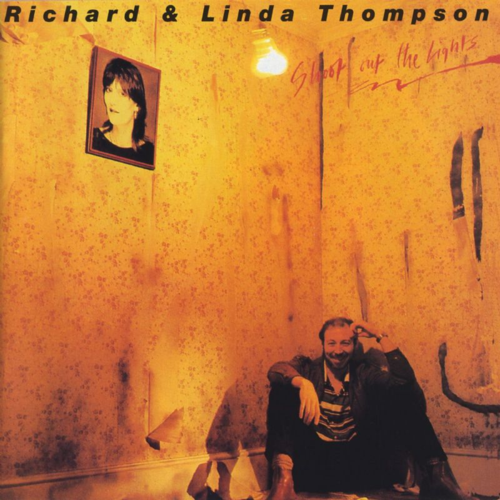9. Richard & Linda ThompsonShoot Out The Lights

Let’s go backwards, to something with a great back story. Early 1988, the end of Hüsker Dü, me living on a farm and not wanting to be that guy any more. Trying to learn a new way to write songs, trying to find a new way to find a voice inside all of it, spending a lot of time with this new blue Strat I had bought on a whim in a guitar store halfway between the city and the farm and a twelve-string guitar I bought out in Boston while I was producing The Zulus’ album [Down On The Floor]. Sit there spring, summer write songs, write songs, all these alternate tunings, all these different ways of composing, starting to write string parts for everything. Somebody at Folkways Records had sent me Nonesuch records – all the heritage, all the Appalachian music, all the Celtic music – I was taking all this in and messing with all these tuning that I felt were so unique, until I found out Joni Mitchell was using them years earlier.
But the upshot is that late summer, baseball season, Dave Ayers, who I’d known for many years in Minneapolis, was managing Soul Asylum and those guys came up to the farm. I hadn’t played any music for anybody for months, none of this new stuff – the only person who had heard it was my manager – so I’m working in this vacuum. Those guys take off and Dave stays and I say, "You wanna listen to some new stuff I’m working on?" I played him a handful of songs, which were the core of what became Workbook, back at his place, and he listens to it and, not wanting to watch his reaction but looking every now and then, I finish and he goes, have you ever heard of Richard Thompson? And I’m like, no, I’ve heard his name but I don’t know his work, so he goes over and pulls out Shoot Out The Lights and some others and said you really need to listen to these records.
I go home and put it on and by the end of the record I’m pretty humiliated. OK, what the fuck? I’ve never heard this guy’s music and Dave’s sort of telling me you’re sort of doing his thing whether you know it or not. I got really self-conscious and then I said, fuck it, I really can’t stop what I’m doing, and I listened to the record and over the years it started to make sense to me, but at the time I didn’t want to dwell on it too much. I don’t wanna get hung up on the fact that we play the same guitar, in somewhat similar styles, with these dark stories with a sort of voice that comes from here and here. As the years went on I really started to dig in and learn more about his work and his history and I got to meet him a couple of times. A sweet guy. God he’s amazing, just unbelievable, puts everyone to shame I swear.
At the time I was very smart to know I couldn’t duplicate or replicate what I’d just come out of, artistically. I wanted to find my own voice, knowing the last thing I wanted to do was to find a couple of guys and emulate what I’d just done. That would have been stupid, ’cause people would’ve gone, "Why did he leave?" Didn’t feel like a good thing to do, and that was the beginning of me leaving that part of my life behind, and only recently, since the book and onward – specifically since the Disney Hall show I guess – do I look back now and really understand that part of my life which I ignored for so long.


